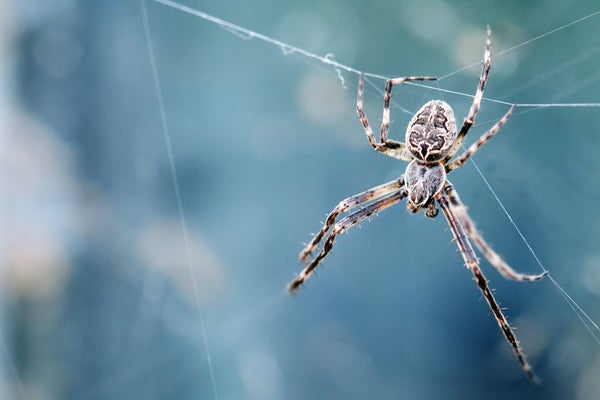Rod Crawford has heard plenty of firsthand accounts of spider-swilling slumberers. “Once or twice a year, someone tells me they once recovered a spider leg in their mouth,” says Crawford, the arachnid curator at the Burke Museum of Natural History and Culture in Seattle.
Luckily for all of us, the “fact” that people swallow eight spiders in their sleep yearly isn’t true. Not even close. The myth flies in the face of both spider and human biology, which makes it highly unlikely that a spider would ever end up in your mouth.
Three or four spider species live in most North American homes, and they all tend to be found either tending their webs or hunting in nonhuman-infested areas. During their forays, they usually don’t intentionally crawl into a bed because it offers no prey (unless it has bed bugs, in which case that person has bigger problems). Spiders also have no interest in humans. “Spiders regard us much like they’d regard a big rock,” says Bill Shear, a biology professor at Hampden–Sydney College in Virginia and former president of the American Arachnological Society. “We’re so large that we’re really just part of the landscape,”
On supporting science journalism
If you're enjoying this article, consider supporting our award-winning journalism by subscribing. By purchasing a subscription you are helping to ensure the future of impactful stories about the discoveries and ideas shaping our world today.
More than anything, spiders probably find sleeping humans terrifying. A slumbering person breathes, has a beating heart and perhaps snores—all of which create vibrations that warn spiders of danger. “Vibrations are a big slice of spiders’ sensory universe,” Crawford explains, “A sleeping person is not something a spider would willingly approach.”
From the standpoint of human biology, the oral spider myth also seems ridiculous. If someone is sleeping with her mouth open, she’s probably snoring—and thus scaring off any eight-legged transgressors. Plus, many people would likely be awakened by the sensation of a spider crawling over their faces and into their mouths. Shear can attest: once, while camping, he awoke to find a daddy longlegs crawling on his face.
Spider experts concede that a sleeping person could plausibly swallow a spider, but “it would be a strictly random event.” People who claim they’ve swallowed spiders never seem to have any concrete evidence. “People tell me this happened to them, but they threw it (the evidence) away—flushed it down the toilet, usually,” Crawford says. There’s also a sore lack of eyewitnesses for such a frequent event as eight spiders a year. So even if you heard or read this spider statistic from a trustworthy source (such as a Snapple cap), you can rest assured that it doesn’t have a leg, or eight legs, to stand on.
